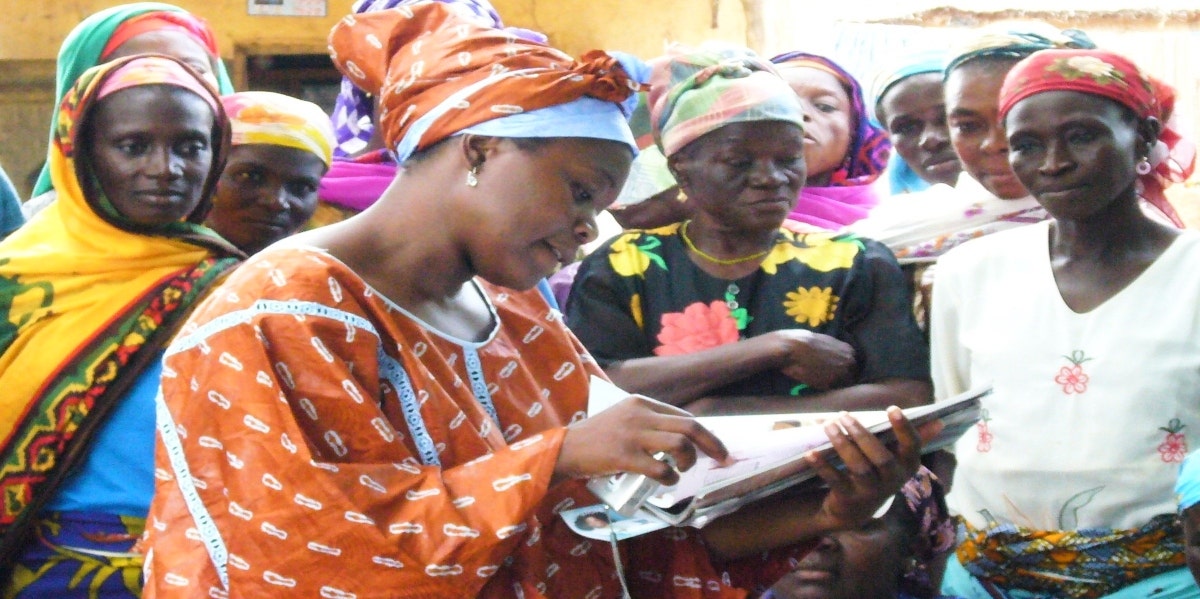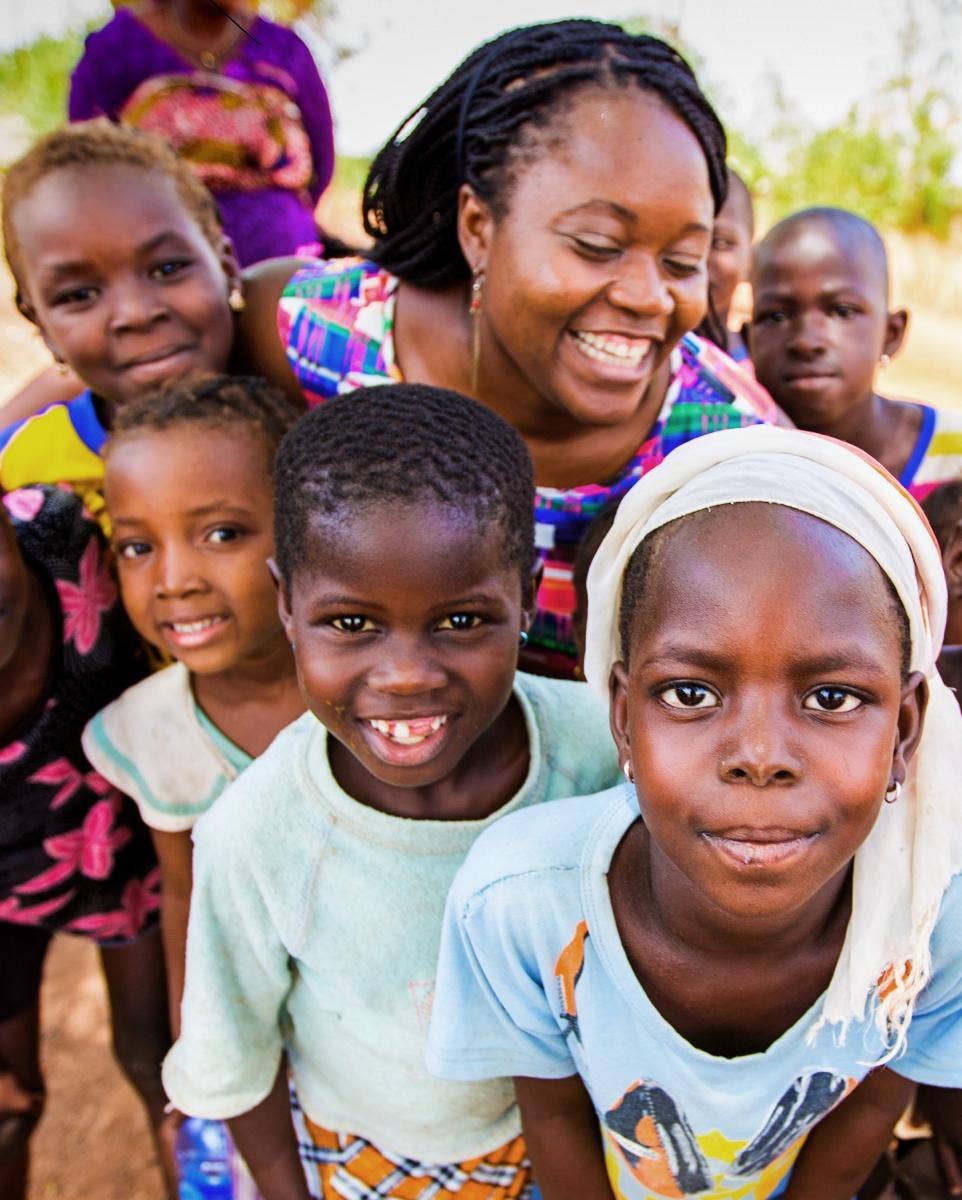How This Black, Female-Owned Brand Is Spreading Love To End Gender Inequality In Africa
Women supporting women.
 Shea Yeleen
Shea Yeleen Building a business has become synonymous with cutting corners to maximize profits.
Some of the largest corporations in the world make their money by exploiting cheap labor in developing countries and rarely care about the human cost of their endeavors.
But for Rahama Wright, founder and CEO of Shea Yeleen, building a business on the backs of underpaid workers was never an option.
Her unique line of shea butter-based skincare and wellness products not only empowers customers to feel their best but also seeks to spread that empowerment to the West African women making the products.
Wright founded Shea Yeleen in 2005 as a nonprofit social enterprise in which women are the ultimate beneficiaries from production to purchase. Her impact in Africa is awe-inspiring and her efforts unite us all.
Rahama Wright spoke to YourTango exclusively about the incredible women behind Shea Yeleen and what we can all do to help end gender inequality in Africa and at home.
The concept for Shea Yeleen was born during Wright’s time as a Peace Corps volunteer in a community health center in Mali.
“During that time, women would frequently come to the health center unable to pay for basic health services whether for themselves or their kids,” Wright tells us.

She was aware shea butter had a strong connection to the lives of women in rural West Africa but was shocked to discover that what should have been an income-generating resource was actually being used to keep women in poverty.
“I was completely stunned to see women who are essential workers within the shea butter supply chain overlooked financially for their labor,” Wright says. “While supplying raw material to multi-billion dollar industries, these women can barely afford food, medical services, and everyday needs.”
Wright, who is proud of her Ghanian heritage, had always wanted to focus her work in West Africa but had expected it to be in a Department of State. However, her time in Mali completely changed that.
“I was both infuriated by these inequalities but also inspired that a solution could be created,” she says.
Through Shea Yeleen, Wright is breaking the mold of economic exploitation by providing sustainable growth that respects and empowers Ghanaian women.
Shea butter has also been an important natural resource in Ghana and Wright wanted to make sure it was being treated as such by offering women a fair price for their labor.
The women behind Shea Yeleen’s products are paid 5 times Ghana’s minimum wage and are provided access to health insurance.
“We are having a transformative financial impact through our business model,” Wright says. “Specifically, women are able to meet their daily needs, send their kids to school, and access medical services.”
She tells us that Ghana’s minimum wage is ordinarily less than $2 per day while a loaf of bread can cost $0.52. Shea Yeleen offers women an income that will allow them to provide for basic needs and still have money to invest in income-generating activities, afford healthcare, and generally improve their lives.
Empowering women financially is just one aspect of Shea Yeleen’s effort. The lasting impact of the company will be how it empowers women to empower themselves.
Wright wants to create growth in Ghana that will help women build generational wealth.
“Aside from living wages and direct access to international consumers through our supply chain, we have also provided over 1,500 women in Ghana with business training and helped to establish 14 cooperatives with 800 members,” she tells us.
Shea butter production is a seasonal agricultural activity so offering year-round income is vital, particularly as COVID-19 created new challenges in Ghana.
“We are launching a $5,000 microloan program to provide loans to women investing in business activities that diversify their income through jewelry making or food production,” Wright tells us.
Ghana has made incredible strides in recent years to reduce the gender gap and Wright’s work plays a key role here — but one company cannot do it alone.
Outside of Shea Yeleen’s efforts, the multi-billion-dollar shea butter industry sadly keeps women in poverty by offering low wages and unfair working conditions under the pretense of creating jobs in Africa.
Wright tells us that the shea butter supply chain keeps women ill-informed and ill-supplied.
“[The] lack of awareness of the global marketplace [is] keeping them blind to the value of their labor,” she says, “The resulting impact of these challenges is systemic poverty.”
Corporations big and small need to be united in the effort to end global inequality.
“The challenge has been getting incredibly large companies to change the way that they do business so that living wage job creation can become the standard in an industry that chooses to exploit women,” Wright states, “The entire system has to change.”
One company showing support to Wright’s inspiring efforts is Anastasia Beverly Hills. Shea Yeleen was the recent recipient of the ABH’s Black-Owned Businesses Grant which will be vital as the brand continues to grow.
“The culture of support and lifting up women is clearly evident not only in this program but also at the highest level of leadership with the ABH company,” Wright says, “Knowing that we have the support of a global beauty brand has been a game-changer.”
Wright also points out that technology has bridged gaps between oceans and continents meaning it's no longer acceptable to ignore the exploitation happening in other countries.
“Customers are becoming more aware and informed resulting in using their purchasing power to make better choices,” she tells us.
By placing women from Ghana to the U.S. at the center of the company, Shea Yeleen promotes collective humanity.
The issues women in Africa face might be packaged differently, but at the core, all women fall victim to gender inequality in some way.
Wright hopes Shea Yeleen can encourage us to help out our fellow women wherever we can.
“Solidarity happens when we realize we are all part of the same human family and one action in our neighborhood store can have rippling effects on another person in a foreign country.”
Alice Kelly is a writer living in Brooklyn, New York. Catch her covering all things social justice, news, and entertainment.

